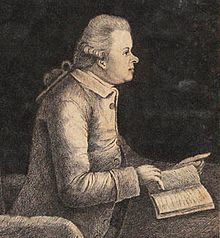
- ↑ "LIVIUS, PETER". Dictionary of Canadian Biography. Retrieved 3 June 2016.
- ↑ "Fellows details". Royal Society. Retrieved 3 June 2016.
Peter Livius | |
|---|---|
| Chief Justice of Lower Canada | |
| In office 1776–1786 |
| International | |
|---|---|
| National | |

Peter Livius | |
|---|---|
| Chief Justice of Lower Canada | |
| In office 1776–1786 |
| International | |
|---|---|
| National | |